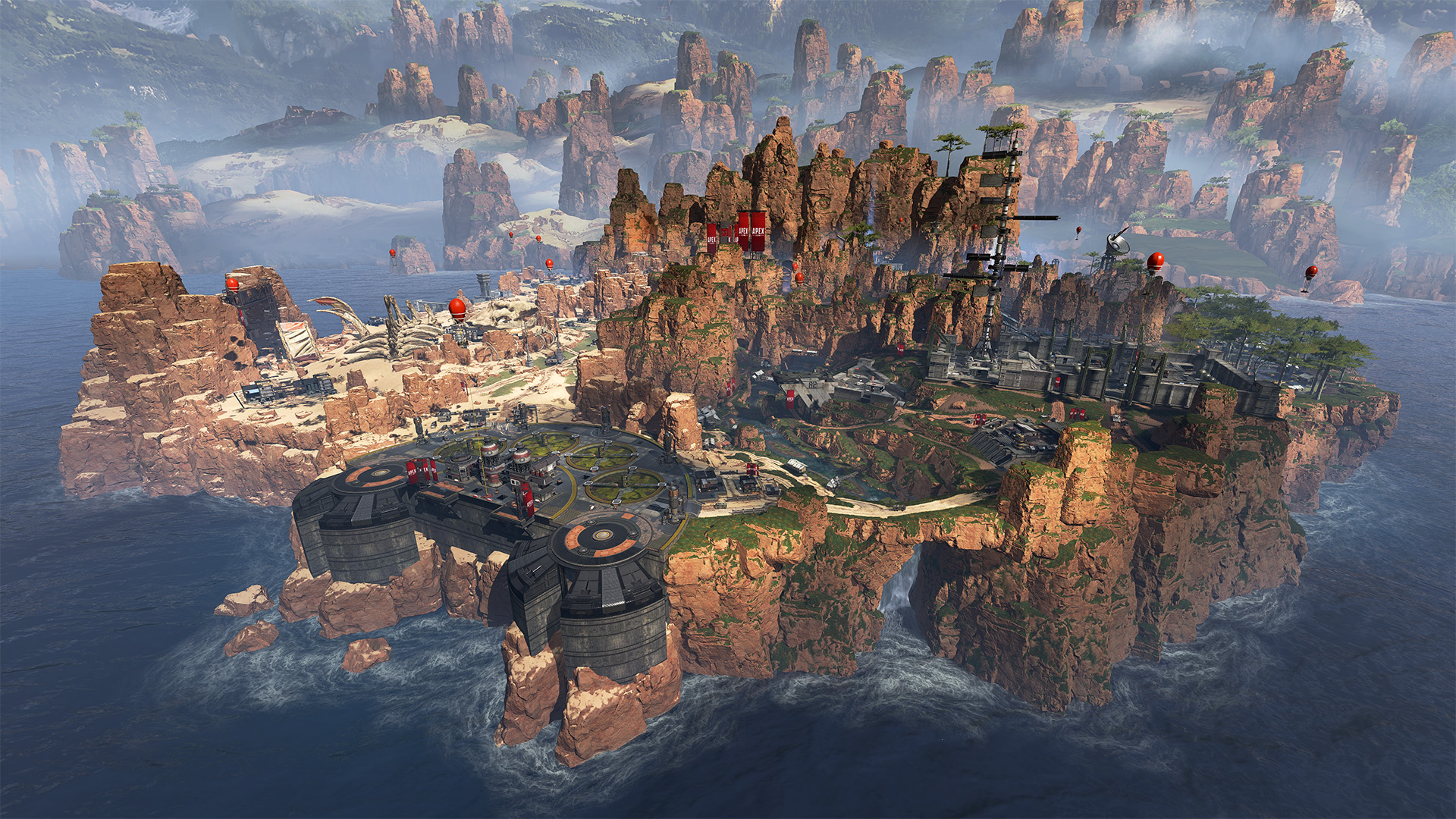Electronic Arts has committed an act that is difficult to predict from the outside. Two weeks before the launch of Anthem sales, which was supposed to be her main spring release, she released Apex Legends. Also a shooter, also about the future. We are trying to figure out why the releases of both games were so close to each other.

Apex Legends
The first rumors about the launch of such a project appeared on Friday.
They were shared by the same blogger who a couple of weeks ago predicted the transition of Fallout 76 to fritupley rails. No wonder they didn’t believe him. However, on Saturday, a similar statement was made by Jason Schreier. The main insider of the western game dev still found it hard to believe.
It wasn’t about the project. Conversely. Respawn has been waiting for the announcement of a new project in the Titanfall universe for a long time — since the sale of the studio for $455 million in 2017 to Electronic Arts.
Something else seemed strange. Why would a publisher who has thrown all his efforts into promoting a very important project for himself release a game in a close target segment at the same time?
There was no answer. Unsurprisingly, it was difficult to accept this.
The announcement and the release of Apex Legends that happened on the same day forced us to return to the occasion. But at the same time, they did not answer the main question — why Electronic Arts took a step that even at the conceptual level seems far from common sense.
Of course, you can go into insinuations in the spirit of “The release of a new game from Respawn will distract attention from the negativity created by Anthem,” but they, given at least a very high level of Apex polishing, definitely do not make sense.
To answer this question correctly, it is better to divide it into two:
- why did the company consider it possible for itself to release two relatively close products?
- why with such a small time difference?
Let’s start with the fact that, in general, the whole story is seen as a consequence of Electronic Arts’ attempt to adopt the successful experience of Activision Blizzard. For the last four years, Bobb Kotik’s company has been regularly releasing two shooters per season. September-October falls on Destiny (a new part or a major addition is being released), and November — on a new part of Call of Duty.
The audiences of the last two titles may overlap. But games don’t cannibalize on each other. Destiny is a futuristic saga about pumping and joint raids. Call of Duty is traditionally more PvP directed and, as a rule, executed in a realistic way.

Apex Legends
On paper, it looks possible to pull off a similar scenario in the second half of winter.
There are two products on hand, formally focused on two different audiences. Free-to-play PvP shooter Apex and PvE shooter Anthem. The first one is addressed to fans of royal battles and heroic shooters. The second one offers new mechanics and a supposedly strong story to fans of joint multi-hour adventures.
What could have gone wrong?
In both cases, we got games in a bright fantastic setting, where the main thing is the ability to work in a team, cooperate with friends or random players. These are both team-based shooters in the universes of the abstract future.
Moreover, one game — Apex Legends — is free, honed, perfectly played, looks and works well on any platforms, and its monetization does not raise questions. As for the other one, Anthem, judging by the public demo, it is raw, both technically and gameplay-wise.
Electronic Arts hardly intended it that way. It turned out to be a production incident. Instead of such different and dissimilar games as Destiny and Call of Duty, Electronic Arts has received projects that still have a lot in common, between which players will choose.
As for the time difference.
There wasn’t a very big time window between Activision Blizzard blockbusters either. It was usually one or two months. However, Electronic Arts could not afford even such a pause right now.
- Due to the release of The Division 2 in March, it is dangerous to postpone Anthem to a later date.
- A new season in Fornite will also start in March. The attention of fans of royal battles will be focused primarily on him. Therefore, it is not necessary to transfer Apex to the first month of spring.
- In April-May there are big events in Overwatch. Also earlier in the spring, Bungie released volume updates for Destiny several times.
- In the summer, first there is a pitching of E3, and then preparation for the New Year’s season.
Electronic Arts kept all this in mind. They had to choose one month for the release of both games — February. The main shooter releases of this month are primarily focused on the single (Far Cry New Dawn and Metro Exodus), so they do not represent much competition for the company’s multiplayer novelties.

Apex Legends
Obviously, the company was also interested in insurance.
After the unsuccessful launch of Battlefield V, it is important for her to finish the financial year well. It ends for her in March. Relying on Bioware, which, firstly, has not previously made full-fledged MMO shooters and, secondly, whose recent projects have been received very coldly, would be strange. It is logical that together with Anthem it was decided to launch another major product.
We will find out how financially correct this decision will be for the whole company in a couple of months. And it is still unclear how this will affect Anthem. So far, we can only talk about a very successful launch of Apex Legends, which broke the ceiling of 1 million users only in the first eight hours from the moment of release.
